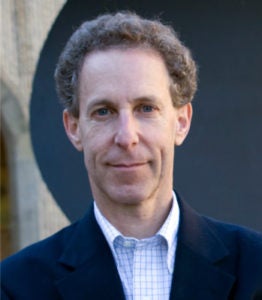What does a Trump presidency, plus GOP control of Congress, mean for energy infrastructure?
Reicher: A Trump presidency, in conjunction with continued GOP control of Congress, could significantly change the direction of the Obama administration’s substantial work on climate and clean energy. But there are some potential bright spots.
First, the U.S. clean energy industry has gone mainstream and become increasingly bipartisan. Clean energy project developers – wind in Iowa, solar in Arizona, carbon capture in Texas and nuclear in Georgia – are going to continue to build this important U.S. industry and look for a partnership with Washington, D.C., in doing so.
Second, support for infrastructure investment – roads, bridges, sewers, etc. – is on President-Elect Trump’s priority list, and it may well include critical, clean-energy-enabling technologies like long-distance transmission lines, large-scale electricity storage and CO2 pipelines.
Third, states from California to New England have detailed strategies in place to cut carbon emissions and encourage clean-energy deployment – from cap-and-trade policies to renewable energy standards. An increasingly linked network of state efforts will help to maintain some progress in addressing climate change and advancing clean energy, even if the federal government tries to pull back on key policy mechanisms like the Environmental Protection Agency’s Clean Power Plan.
Fourth, nations across the globe are implementing the climate commitments they made in Paris, and the U.S. clean energy industry wants a piece of this massive economic pie. The new administration and Congress will need to be careful about not cutting this fast-growing industry off at the knees.
Finally, the unprecedented global risk that climate change poses – and the multi-trillion-dollar economic opportunity it represents – might overcome some of the obstacles that the new administration and Congress may try to build in the nation’s capital.
Richter: No one really knows what the Trump administration’s energy policy will be. The Republicans generally favor nuclear power more than the Democrats do. They also strongly oppose the EPA program to set greenhouse gas emission targets. Perhaps they might be willing to do something like a revenue-neutral carbon tax, in which all carbon tax revenues go toward reducing other taxes, especially income tax, to replace the EPA regulatory approach. We will have to wait and see.
Wolak: Significant investments in interstate energy infrastructure are necessary to capitalize on the rich renewable and conventional energy resources that exist in the United States in a manner that benefits all Americans. The desire of President-Elect Trump to undertake significant infrastructure investments and the GOP control of Congress can allow that to happen.
Rapid technological advances in both wind and solar power have created a significant need for investment in electricity transmission and distribution. Technological improvements in shale oil and gas extraction have created a similar need for oil and gas transportation infrastructure. These infrastructure investments can have significant follow-on job creation and economic growth benefits by enabling more rapid deployment of renewable generation and greater displacement of foreign sources of oil and gas by domestic sources.
Dan Reicher is executive director of the Steyer-Taylor Center for Energy Policy & Finance and professor of the practice of law at Stanford Law School.
Burton Richter is a Nobel laureate in physics and director emeritus of the SLAC National Accelerator Laboratory.
Frank Wolak is the Holbrook Working Professor in Price Theory, a professor of economics and director of the Program on Energy and Sustainable Development.


